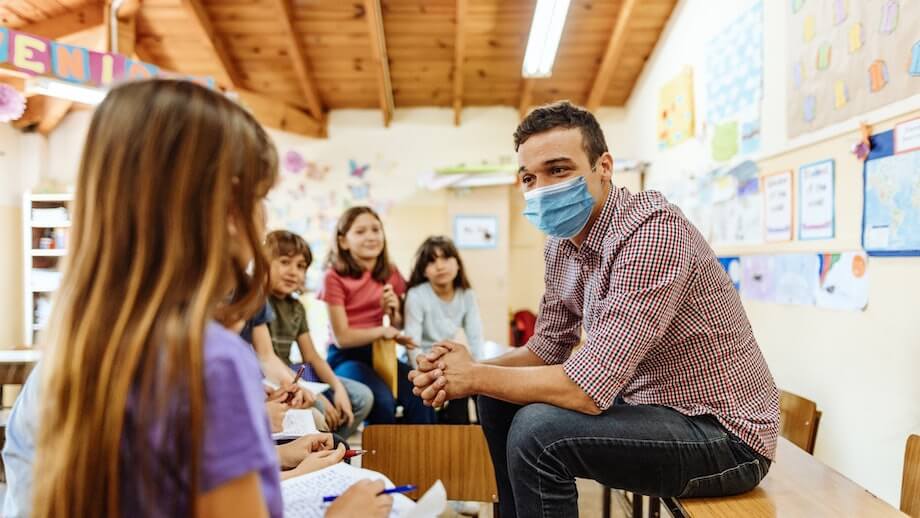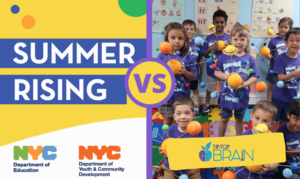Know somebody with kids in a learning pod this school year? What’s their deal? Learning pods have popped up countrywide as a means to mitigate the insanity that is schooling in the age of COVID-19. But, what exactly do pods do? Well, most of them have been designed and customized by small groups of parents, so there is some variability in their function. Generally, pods are either parent-facilitated groups of students attending online school together, but some pods hire teachers or tutors as well. Although there are many “flavors” of learning pod, most pods reap common benefits and share similar pitfalls.
At their simplest, learning pods are designed to allow groups of neighborhood kids or family friends, to participate in school together while reducing the transmission of COVID-19. The underlying principle of learning pods is that students can limit their contact with others while attending a physical “school.” In many cases, this “school” is the home of a parent who will host the pod. The idea is that by having a small group of the same students consistently meeting, the risk of COVID transmission is relatively lower than at a traditional school. Ultimately, these pods allow students to work alongside their peers while attending online school. No less, when parents are off hosting duty, they can work outside the house. Wins all around right? Well, yes, but there are a few drawbacks.
Pros about learning pods
Increased Motivation
By virtue of in-person friends and fun being reintegrated into students’ lives, a pod will likely increase your child’s excitement around school. Given the less than ideal school year, students developing a healthy and positive attitude toward school is especially important right now. Moreover, the social aspects of education are shown to impact motivation greatly.
Social Stimulation
Students, like us, are feeling a bit stir crazy. Simply put, the opportunity to interact, learn, and to play with their peers brings smiles to their faces. Moreover, for students spending a lot of time alone, the inevitable transition back to school may be intense, and regular social interactions may alleviate some of that stress.
Shared Responsibility & Cost
Many pods split the cost of teachers and tutors amongst the families participating. The split-cost can be advantageous for parents looking for additional educational support for their children, but cannot afford one-on-one services. Some pods opt to “split” the hosting responsibility as well, alternating between households when convenient. This gives each parent the opportunity to work outside their homes and prevents any one parent from getting “burnt out.”
Time Outside the House
Need we say more?
Cons about learning pods
Increased Exposure Risk
Of course, the risk of spreading or contracting COVID-19 in a learning pod is nonzero. Each child runs the risk of introducing COVID to the pod from their respective household. Although keeping the pod small, and the group of students the same helps to mitigate the risk, it isn’t entirely eliminated.
Teachers/Tutors Can Be Costly
For pods that recruit certified teachers or tutors to instruct students, things can become costly quickly, especially if there aren’t enough students in the pod to lower the per-student cost.
Varying Ability
For most pods, having students with greatly different scholastic skills and competencies isn’t necessarily an issue. However, for pods employing teachers or tutors, having too wide a gap in skill between students could be problematic. Younger or weaker students run the risk of feeling excluded or helpless if they fall behind in their pod. Conversely, and no better, stronger students may end up bored if they aren’t being challenged enough. Of course, pods can seek out additional teachers or tutors to meet the needs of their students, but it can quickly become costly.
For most pods, having students with greatly different scholastic skills and competencies isn’t necessarily an issue. However, for pods employing teachers or tutors, having too wide a gap in skill between students could be problematic. Younger or weaker students run the risk of feeling excluded or helpless if they fall behind in their pod. Conversely, and no better, stronger students may end up bored if they aren’t being challenged enough. Of course, pods can seek out additional teachers or tutors to meet the needs of their students, but it can quickly become costly.







